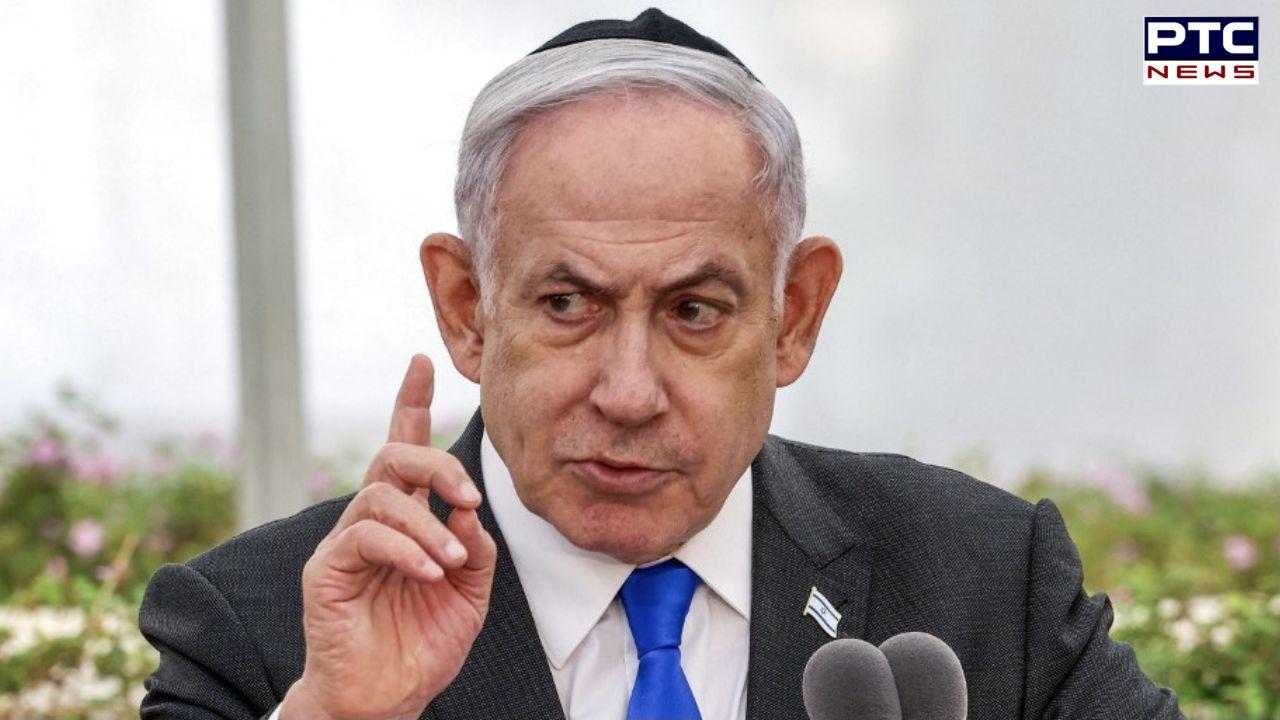Israeli PM Netanyahu confirms hostage release deal amid intense Israel-Hamas conflict
National Security Minister Itamar Ben-Gvir, a hardline ally of Netanyahu, threatened to resign if the government approves the ceasefire

PTC Web Desk: Israeli Prime Minister Benjamin Netanyahu announced on Friday that an agreement to secure the release of hostages held in the Gaza Strip has been reached. The deal, which includes a temporary ceasefire, follows reports of last-minute disagreements that delayed its finalisation. Netanyahu stated that he would convene his security Cabinet and the government later on Friday to approve the highly anticipated agreement, as reported by the Associated Press.
“The State of Israel is committed to achieving all the goals of the war, including the return of all our hostages – both living and dead,” read a statement from the Prime Minister’s Office.
The ongoing conflict between Israel and Hamas erupted on October 7, 2023, when Hamas militants launched a surprise attack, killing over 1,200 Israelis and taking hundreds hostage. Since then, the Israeli military has conducted relentless operations in Gaza, which have reportedly killed more than 46,000 Palestinians.
The war has drawn widespread condemnation, with rights groups accusing Israel of committing war crimes, an allegation the Israeli government denies. The conflict has created a dire humanitarian crisis in Gaza, with hundreds of thousands of Palestinians displaced and critical infrastructure destroyed.
The ceasefire deal aims to temporarily halt hostilities, facilitate the release of hostages held by Hamas, and secure the freedom of Palestinian prisoners in Israeli custody. It also seeks to enable displaced Palestinians to return to their homes amid the ruins of Gaza.
While the agreement has raised hopes for relief in the war-torn region, the violence has not abated entirely. On Thursday, Israeli airstrikes killed at least 72 persons in Gaza.
Israel delayed a vote on the ceasefire on Thursday, citing unresolved issues with Hamas over specific terms of the deal. Netanyahu’s office accused Hamas of backtracking on key points, reportedly to seek additional concessions. Though details of the disagreements remain unclear, Israeli government spokesperson David Mencer pointed to disputes over the deployment of Israeli forces in the Philadelphi corridor, a strategic strip of land bordering Egypt.
Hamas officials denied these claims. “Hamas is committed to the ceasefire agreement, which was announced by the mediators,” said senior Hamas leader Izzat al-Rishq.
The proposed deal has also sparked fierce opposition within Netanyahu’s far-right coalition government, which has expressed strong resistance to any pause in military operations. National Security Minister Itamar Ben-Gvir, a hardline ally of Netanyahu, threatened to resign if the government approves the ceasefire.
Despite the resistance, Netanyahu has emphasised the importance of securing the hostages' release while continuing efforts to meet Israel’s broader war objectives.
The agreement has been facilitated by international mediators, including the United States and Qatar. US President Joe Biden has been actively involved in supporting the negotiations, reflecting the global interest in de-escalating the conflict. The role of Qatar, which has served as a key intermediary between Israel and Hamas, has been instrumental in overcoming the impasse.
